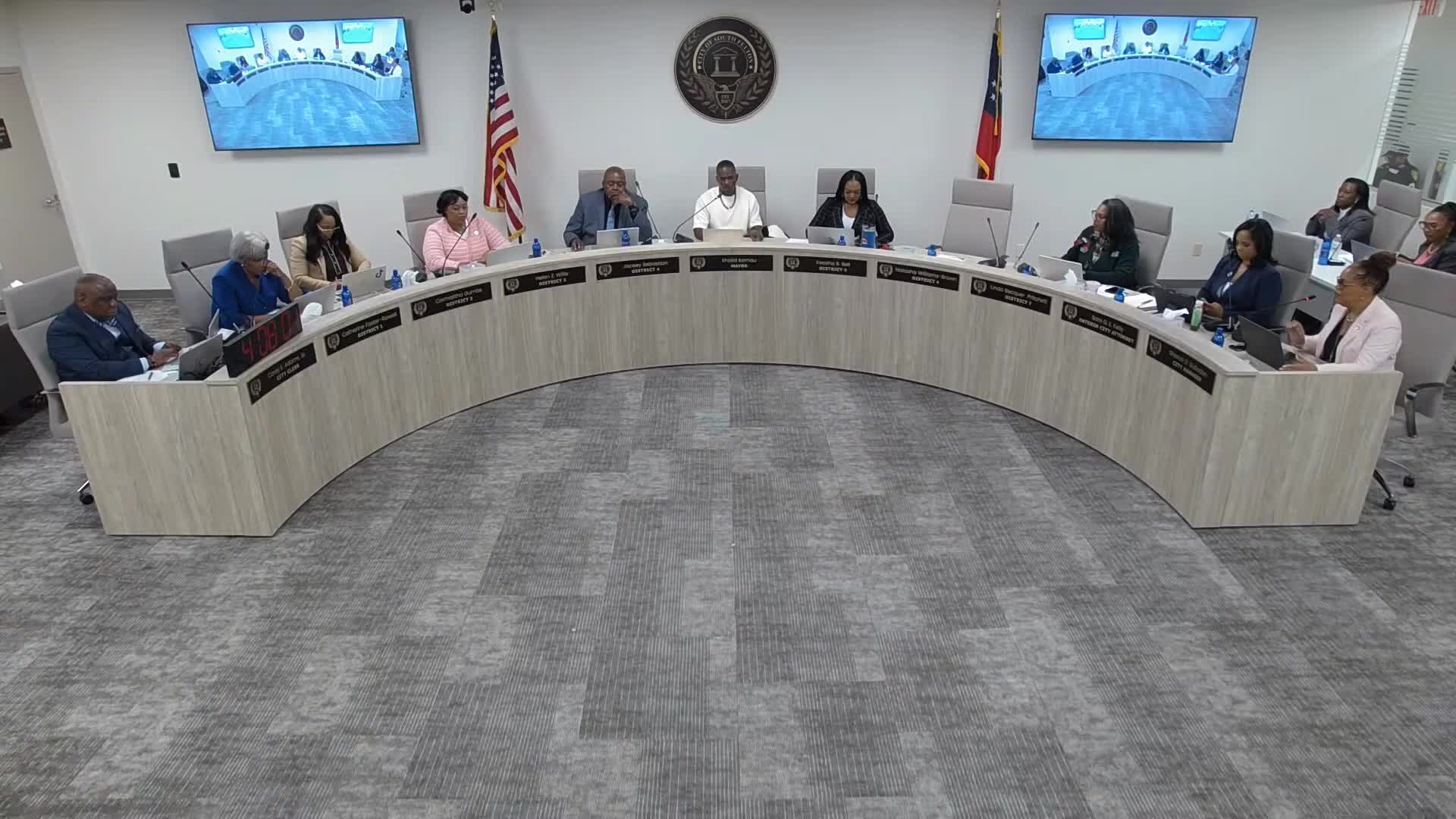South Fulton officials discuss p‑card compliance after outside audit, mayor's account still frozen
Get AI-powered insights, summaries, and transcripts
Subscribe
Summary
City manager and council members reviewed Baker Tilly recommendations and implementation steps for the city's purchasing‑card (p‑card) program; city manager said overall compliance has improved but the mayor's account remains frozen pending council action.
City Manager Sharon D. Subadan told Mayor and City Council on Oct. 14 that the city has been implementing recommendations from an outside audit of the purchasing‑card program and that compliance has improved but is not yet at the target level.
The city manager said, "Our goal is for 95% compliance. And, at this point, strictly speaking, we're at about 82%." She added that if purely administrative items are excluded — for example approved travel forms not uploaded to match transactions — compliance is closer to 94%.
The update came at the council's 4 p.m. work session while members pressed for detail on whether further, more costly forensic audits were needed. Subadan said forensic audits can be expensive and are typically targeted rather than done system‑wide: "forensic audits are expensive. Typically, just from my own experience, when you're going to do a forensic audit, you're looking for something more specific and more targeted versus just kind of a blanket."
Why it matters: the audit findings prompted council debate over whether to continue the p‑card program with stricter controls or to eliminate it. Council members repeatedly asked how the city has followed Baker Tilly's recommendations, and Subadan described steps already taken: monthly internal reviews, retraining, a contracted internal auditor who reviews every transaction, and reissued p‑cards printed with the city's state tax exemption number.
Council questions and follow‑up items
Council members pressed for clarity about who is administratively responsible and what happens when misuse is found. Councilwoman Helen Z. Willis asked whether every cardholder is governed by the same policy; Subadan said, "absolutely. Everybody is under the same policy." Willis also asked if the auditors recommended forensic audits; Subadan said the auditors did not call for a blanket forensic audit but offered targeted recommendations and suggested stricter compliance or elimination of the program as options. "When you're gonna use p cards, use them properly and follow the process," Subadan said.
Council and staff also clarified operational items: the city will do an annual review and may not reissue cards unused for 12 months; the city plans to limit p‑card exposures such as setting lower spending caps for council members on the ballot; and the council previously voted not to give p‑cards to council members, a decision that could be revisited by council vote for the new fiscal year.
Questions left open
Council members pressed about whether the city attorney or human resources would be engaged for suspected misuse. Subadan said policy currently provides a path: card issuers are responsible for compliance; if violations occur, the city manager will notify the city attorney to determine any employment or administrative consequence. Council members also requested a report back with the final proposed P‑Card policy and standard operating procedures (SOPs) before any new reissuance of cards to the council or mayor.
Ending
Council members asked that the city manager bring the revised P‑Card policy and SOPs back to council for a formal vote and that staff document responsibility and disciplinary steps for noncompliance. Several members said the finance report that accompanies the manager's update should show subsequent monthly progress against the 95% target.
